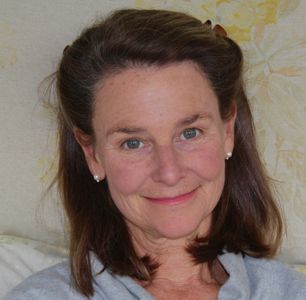Issue #102
What’s New in September 2023
Featured Article
A Most Remarkable Mystical Experience
By Margaret Dulaney
I‘ve been thinking a lot lately of the belief, shared by many of those whom I admire, many whom I read, some centuries old, of the eventual coming of a new era of peace to the planet. Some see it as a return to the garden, so to speak: a time when we will put down our dashing-around ways, to lead a simpler, more love-filled life of small community kindnesses, with an emphasis on education and healthy gardens. This picture of the new Eden has been envisioned for thousands of years, often predicted to be imminent, so far elusive, and yet hoped for.
Every day for the past fifty years or so, I have repeated the line from the Lord’s Prayer, “Thy Kingdom come, thy will be done.” Only recently has it occurred to me that it might be nice to exchange the word “come” with the word “rise”: Thy Kingdom rise. For I sense that this might be more of a rising out of the inhabitants of the Earth rather than an arrival to the Earth and its inhabitants. The idea that the New Kingdom will rise out of each of us, to eventually reach a tipping point, which will precipitate a spilling over and into peace, resonates.
I have in the past two years read a series of books called Choose Only Love by an Argentinian man named Sebastián Blaksley. Sebastián is a Christian mystic of sorts. A life-long practicing Catholic, he was gifted as a child with small hints of the mystical, leaned toward a profession in the church, but made the decision as a young adult to join the secular world. He worked for international corporations, married, and had two children. It was in his middle years when he was revisited by the mystical and began to receive a series of heavenly visions. These were quite profound events, which led him to write a series of seven books on Love (Love with a capital L.) I found these writings to be revelatory, and consumed them hungrily.
It was no great leap for me to embrace Sebastián’s revelations. I was raised on Christian mysticism, with a grandmother who was a follower of the writings of the Christian mystic Rudolf Steiner, and I have continued throughout my life to be drawn to the writings of the mystics of all faiths and of all eras.
The overall message in this series of books is the conviction that an Era of Peace will rise out of our human hearts, filled and driven by heavenly love. This makes such practical sense to me that my inner skeptic can find little purchase to disbelieve.
The truth is, I so wish to believe that this shift in global consciousness will someday emerge, that I found myself wide open to Sebastián’s conviction. His assurance brings me several steps closer to embracing as an inevitability the idea of this great change. His writings echoed my own suspicion that the New World will rise up and out of our hearts, rather than descend from the heavens, as in the traditional view of the Second Coming. In Sebastian’s visions, the light of Christ, or as I like to think, the light of pure wisdom and love given to all of us from God, will shine brighter and brighter until we can no longer exist in darkness. At which point we will lay down our arms (or divisions) and learn to love one another. Of course, there will be those who resist this shining, who are not ready for the change, but the tipping point will bring about the great shift in global consciousness, ushering in a new way of living.
I was introduced to Sebastián Blaksley from an online interview I watched, conducted by the Center for Contemporary Mysticism. It was a simple affair, held online, between the interviewer Patricia Pearce and the author, who appeared a gentle man in his middle years. As Sebastian spoke from his home in Argentina, I sat on my couch in Pennsylvania with a friend whom I had invited to watch the interview with me. Somewhere about three quarters of the way through the program, Sebastian explained how he viewed the Second Coming as being more of the spirit of Love rising up from our individual hearts than the return of the spirit manifested in a single human being. It was during this moment when I began to have my own mystical vision. And please don’t think this is a regular occurrence with me. I was quite mystified, shook my head several times, looked over to see if my friend was experiencing what I was experiencing—which she was clearly not—and returned my gaze to stare with wide-eyed wonder at the screen. “What the heck?” I thought…
Sebastián’s face, to my perception, was undergoing a series of marked transfigurations. He moved from Sebastián to another, completely different person, and then to another younger, totally dissimilar person, to another, wildly distinctive ethnic person (one clean-shaven, the next with a beard), and finally, on one occasion, appeared as a woman. I watched as he became at least seven distinctly different people, after which he returned to being Sebastián, and the vision ended. Of course, there was no doubt that I was to explore this man’s writings. This was just so . . . so biblical, or maybe I should say, so in line with the mystics of all traditions, with their unitive view of mankind, with the Great Spirit manifested through all our spirits.
This idea of the rising of a New Era brings to mind the natural growth of a single human being. Our adult selves rise up and out of the seed of our child selves. The adult grows and becomes. The youth, at a certain age between childhood and adulthood, must be given the freedom to make mistakes in order to learn from the consequences of behavior and grow in wisdom.
This is how I see what Christians refer to as The Fall, in reference to Adam and Eve’s choice to eat of the fruit of the tree of knowledge, and the free will that they were given to help them to make their own way. In the case of children, this seems the only way to bring about the emergence of the adult. Humanity must, like a child, be given its freedom in order to claw its way up and into adulthood. Perhaps this massive global consciousness of ours could be likened to a single youth, about to blossom into adulthood?
Sometimes I will ask myself, when making a tough decision, “What would an adult do?” I know I’m in my sixties, but I can revert when challenged. Many of my more childish reactions are those where I decide to look away, not to get involved when someone might need my attention. My inner adult needs constant prompting, it seems. “Just go and talk to them directly, be an adult,” I will say to myself. It is a childish habit not to speak to people directly when one is having an issue. We do this when we go to the boss to complain about a co-worker, for instance, instead of first going to the co-worker to give them a chance to hear us and a chance to respond. We won’t know whether either of us has reached adulthood until we try this direct method of communication. I believe that most of my childish responses to life have involved choosing not to speak. I can imagine that some would say the opposite. That many times the childish response is to speak too quickly, and without thought. Maybe what I should say is that thoughtful, honest communication might be a sign of the blossoming of adulthood, and, interestingly, a sign of the rising of the New Era on the planet. Adults talking to one another, thoughtfully, to end division, to return to the garden.
Perhaps it’s enough to practice this simple strategy of careful dialogue in our daily dealings with mankind, animal kind, plant kind. Perhaps this will lead to the blossoming of the New Era? It seems worth a try.
Margaret Dulaney is the author and narrator behind the spoken word site ListenWell, which posts one spoken essay a month on open-faith, spiritual themes. She is the author of the books To Hear the Forest Sing and The Parables of Sunlight among others. To purchase or to contact Margaret, please visit www.Listenwell.org





Yes! We “Let God arise (from our hearts )and let enemies be scattered ” Thoughts that are not the truth.